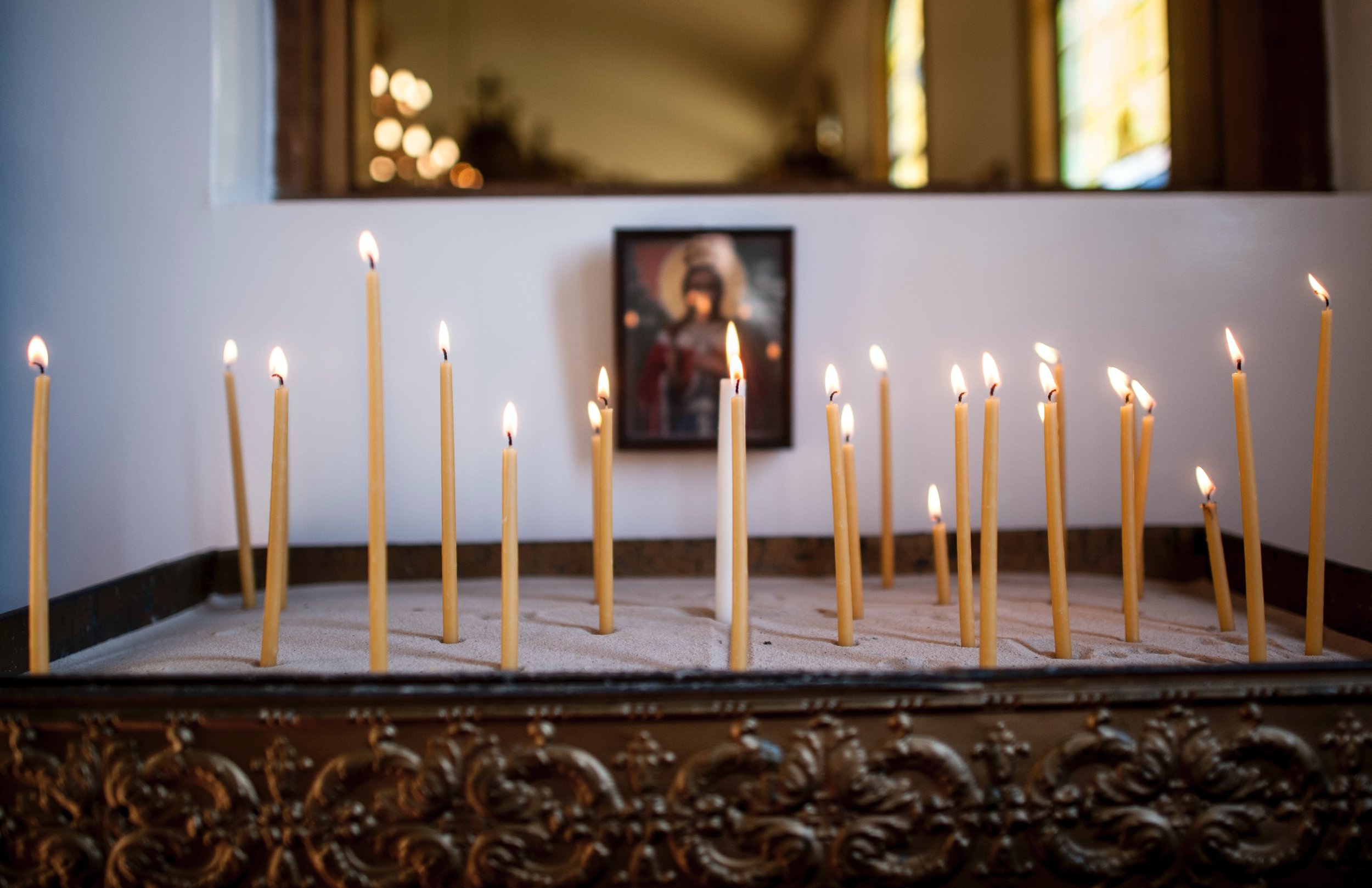Trampling Death by Death
Christians in the East traditionally sing a hymn by St. Romanos the Melodist at Easter. Again and again the beautiful and mysterious words “Christ is risen from the dead, trampling down death by death” are repeated by the faithful.
But what does this mean? How can Jesus conquer death by death?
Binding together the Crucifixion, Resurrection, and Ascension is a powerful and counterintuitive theme. That connecting piece is the incarnational manner of Christ’s redemption, bringing with it an emphasis on redeeming humanity by eternally uniting it with the divine. This earth-shattering reality suggests the unthinkable: that God desires reconciliation with His creation to the point of taking on our humanity in order to redeem it, to redeem us.
Athanasius’ timeless observation tells us that “the Son of God became man so that we might become God” (On the Incarnation). We hear about the Incarnation so often the magic is lost. We are speaking of God, the infinite and uncontainable, willingly being contained by our finite flesh. The logistics of it are mind-boggling enough, but the motivation is even more unfathomable. To think that our God wants us to be part of His Divine Family!
Of course, the history of Jesus Christ does not stop with the Incarnation, and neither does our own redemption narrative. For Christ’s taking on our flesh is but the start of a new process, the beginning of new life. That is what He offers us through His Body.
And the story continues. After leading a perfect life and suffering a horrible death on the Cross, Christ fulfills the will of God by descending into the depths of Hades before completing His own glorious Ascension.
Christ retains His humanity throughout –– glorified but eternally intact. This retention of humanity is crucial to our understanding of new life in Christ, not to mention our belief in the continued goodness of creation. By perfecting humanity, He redeems and renews the very foundations of our human existence. That is what He gives us through His Blood.
Our Lord promises that “He will make the feeblest and filthiest of us into a god or goddess, dazzling, radiant, immortal creatures, pulsating all through with such energy and joy and wisdom and love as we cannot now imagine” (C.S. Lewis, Mere Christianity). On our own this is impossible, but we are not alone.
Reminiscent of the description of our Blessed Mother as the moon which reflects the light and warmth of the Sun, Lewis describes Christians undergoing this state of deification as becoming “a bright stainless mirror which reflects back to [God] perfectly (though, of course, on a smaller scale) His own boundless power and delight and goodness.” Calling to mind God’s gratuitous delight in the use of secondary causes, we remember the divine order and the human need for communion. Being one with God demands both.
Even the mere possibility of theosis is a wonderful promise to ponder. To achieve it, however, we must prepare for sacrifice. “The process will be long and in parts very painful; but that is what we are in for” (Lewis). As we have already learned, overturning the disorder we’ve introduced requires a sacrifice of self, and such sacrifices are painful experiences. Ultimately, however, there’s nowhere else to go because nothing besides “the words of eternal life” will satisfy the yearnings of our soul, as St. Peter observes (John 6:68).
If you have questions about Catholicism and would like to personally discuss them, we’d love to chat. Please contact us and someone on our team will reach out shortly to connect with you.

